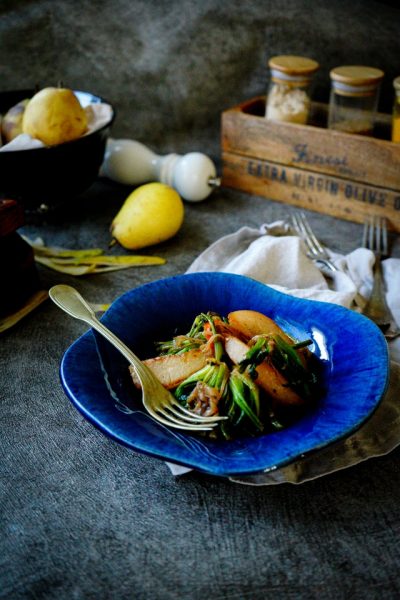During pandemic times, nearly everyone has one question on their minds: how can they decrease their chances of getting sick? It all begins with shoring up your body’s natural defenses.
Everything you do, from how you move to what you eat, affects your total health. Likewise, you can take steps to minimize your germ exposure. Here are six ways you can boost your immune system this year and survive the holiday season sniffle-free.

1. Improve Your Diet
The foods you choose have a significant impact on your immune function. For example, vitamin C can shorten a cold’s duration, but only if you take it at the first sign of illness or have plenty of it in your body when germs invade. The same goes for zinc.
Your body absorbs these nutrients from foods more effectively than from supplements. Adding more foods like fresh red peppers and nuts into your diet ensures your body has a fresh store on hand for defending against microbial invaders.
You also do well to add more seafood into your diet. The omega-3 fatty acids within reduce your risk of dying from heart disease by 36%. Cardiovascular disease remains the number one killer of men and women, and trouble with this organ can strike if you become infected with COVID-19. It’s worthwhile to add a bit of haddock or lobster to your weekly menu.
2, Take IV Therapies
3. Move Your Body
Exercise helps to boost your immune system through various mechanisms. One such change occurs at the cellular level. Movement prompts changes in your white blood cells that make them more efficient defenders against bacteria and viruses.
Additionally, physical activity increases your respiration rate, helping to move any pesky germs out of your airways before they can nestle in, set up shop and multiply, making you sick. Furthermore, the increase in body temperature acts as a mild fever to create an uncomfortably warm environment for most bacteria and viruses. Finally, the endorphin rush improves your mood, giving you a sense of well-being that makes you feel — and act — healthier.

4. Practice Good Hygiene
Hopefully, you still sing “Happy Birthday” twice through in your head several times daily while washing your hands. It’s also wise to keep your hand sanitizer handy for those times when a sink isn’t. The plummeting flu levels during the pandemic illustrate how the adage about an ounce of prevention rings true.
What about wearing a mask? Although most jurisdictions have done away with requirements, you might want to consider donning yours in indoor public spaces and crowded outdoor venues, like concerts. Evidence suggests that they do offer some protection for both the wearer and those around them. Even fully vaccinated people have died from the virus — a simple preventative act could save a life.
5. Manage Your Stress Levels
Your mind and your body work as one. Think back to the last time you felt nervous about giving a presentation at work or school. You might not have eaten anything that didn’t agree with you, but your stomach probably felt queasy.
Managing your stress levels impacts immune health by keeping your hormonal balance in check. Excess tension makes your body ramp up cortisol production, a stress hormone that can lead to a host of adverse effects in excess. An accumulation of this substance can increase the production of inflammatory cytokines, proteins that exacerbate chronic pain.
How can you keep stress in check? Cultivate healthy coping mechanisms — and use them when you feel otherwise okay. Interventions such as deep breathing, mindfulness, and yoga work, but they’re much more effective if you practice before you need them during a crisis.
6. Go Wild
When was the last time you went for a hike or spent a night camping in the woods? Doing so could help shore up your body’s natural defenses against germs.
People who participate in “forest bathing” by spending time immersed in the natural world have increased activity in their natural killer cells, a type of immune cell that seeks and destroys germs. The magic lies in phytoncides, chemicals plants emit for defense. When human beings inhale them, it prepares their bodies’ soldiers for battle.

7. Get Your Sleep
Finally, your body performs vital immune system maintenance while you sleep. Getting adequate rest ensures that you give those cells time for a complete system tune-up.
Remember those cytokines? They are only bad in excess. You need the right amount to defend against invading germs. Your body produces these substances while you sleep, and a lack of rest can depress your immune function.
Plus, going without adequate shuteye can make you more accident-prone. Driving while tired is as dangerous as doing so after a few drinks. Mix in a little snow, ice, and holiday traffic, and you have a recipe for disaster if you fail to get your Zzz’s.
Boost Your Immune System This Year
During pandemic times, it’s smart to improve your body’s natural defenses. Boost your immune system this year with the above tips.

